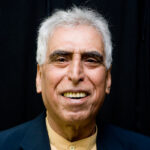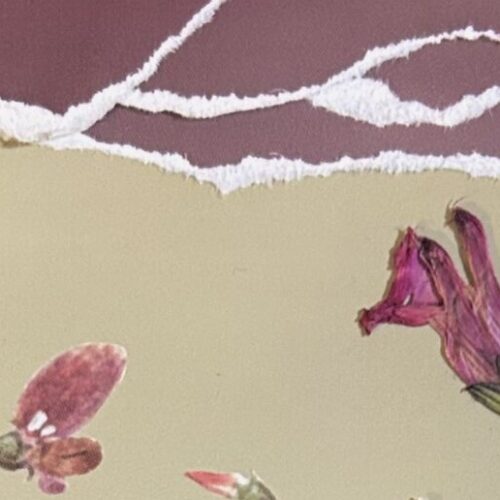Translated from Saadi Youssef
When I close my eyes a country falls
into my palms, the country
that taught me I have no name,
a man fated to the nation’s shoe soles.
(How many times have I been under the warden’s shoes?)
I still bear a scar on my face from a policeman’s blow.
The country I knew
and never learned, not once, to be a country.
One night,
my terrible country
thrust me into the gallows room.
………………
………………
………………
That was in 1963.
They took us from al-Naqra at dawn.
I don’t remember how—
Was it the slow train or the buses that were even slower?
That night, we were prisoners in Ba‘quba.
There wasn’t enough room for everyone.
A guard came to me
“You, go the gallows room!”
The gallows room opened.
The guard closed the door in an instant.
I was near dead—
To be taken, at dawn, from your quiet grave in the Naqra prison
to all of a sudden find yourself in a gallows room…
(in Baquba prison)!
I sat under the monstrous structure:
The rope
knotted and ready into a noose,
below it, the wooden board—
Any second the plank could fall:
Where to escape?
…………………
…………………
…………………
Here you are again, exhausted forever,
and deported from prison to prison.
You close your eyes on the impossible room
and its rope knotted into a noose.
You grip the rope
until you fall asleep.
……………
……………
……………
Country whose prison cells are all I know,
peace be upon you!
غرفة المشنقة
سعدي يوسف
آنَ أُغمِضُ عينيّ … تأتي إلى راحتَيَّ البلادُ
البلادُ التي عرّفَتْني بأني امرؤٌ ليس يُسْمى ،
امرؤٌ قَدْرُهُ النعلُ
( … كم مرةٍ كنتُ تحت حذاءِ المفوَّضِ )
بل أنّ لي نُدْبةً ما بوجهيَ ، من صفعةِ الشُّرَطِيّ .
البلادُ التي كنتُ أعرِفُ
ما عرفَتْ ، مرّةً ، أن تكونَ بلاداً ؛
بلادي الرهيبةُ
قد أدخلَتْني إلى غرفةِ المشنقةْ
ذاتَ ليلٍ …
………………
………………
………………
كان ذلك في 1963
نقلونا من ” النُّقْرةِ ” الفجرَ
لا أتذكّرُ كيفَ …
القطار البطيء ، أو الحافلات التي هي أبطأُ
في الليلِ كنّا مساجينَ بَعقوبةَ
ما كان في السجنِ متّسَعٌ للجميعِ
تقدَّمَ لي حارسٌ :
” أنتَ تدخلُ في غرفةِ المشنقة!”
*
انفتحتْ غرفةُ المشنقةْ …
أغلَقَ الحارسُ البابَ في لحظةٍ
كنتُ أقربَ للمَيْتِ :
أن تؤخذَ ، الفجرَ ، من خَبْتِ قبرِكَ في ” النقرةِ ” السجنِ
حتى تكونَ بغرفةِ مشنقةٍ
( سِجْنُ بَعقوبةَ )
كنتُ تحتَ الجهازِ العجيبِ الذي هو مشنقةٌ
هذا هو الحبلُ
منعقدٌ، جاهزٌ ، شكلُهُ شكلُ أُنشوطةٍ …
إنه ، الآنَ ، أُنشوطةٌ ،
تحته اللوحُ
في لحظةٍ يسقطُ اللوحُ :
اين الفرارُ ؟
…………………
…………………
…………………
ولكنّكَ المرهَقُ الأبديُّ
المُرَحَّلُ ما بين سجنٍ وسجنٍ
أنت تُغمِضُ عينَيكَ في الغرفةِ المستحيلةِ
والحبْلُ منعقدٌ ، مثلَ أنشوطةٍ
أنتَ تُمْسِكُ بالحبلِ
حتى تنام …
……………..
……………..
……………..
يا بلادي التي لستُ أعرفُ غيرَ زنازينِها :
لكِ مني السلامْ !





